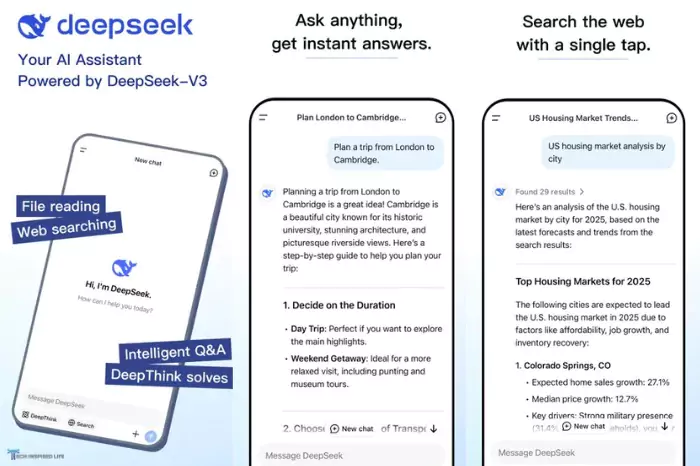A fresh name in AI, DeepSeek, is causing ripples—no, waves—in tech. This company, straight out of Hangzhou, didn’t just appear quietly. In a short time, it’s managed something wild: building AI models that actually challenge giants like Google and OpenAI. Their latest creations are a language model called DeepSeek R1 and an image generator known as Janus-Pro. So what’s the deal with DeepSeek? And why should anyone care?
Fast, Cheap, and Unstoppable
DeepSeek is the brainchild of Liang Wenfeng, a hedge fund guy turned AI boss. 2023 is when it all started. Unlike the American AI behemoths throwing billions at model training, DeepSeek does more with way, way less. By integrating AI in apps with remarkable efficiency, they’ve shown that groundbreaking technology can be developed without massive budgets, setting a new standard for innovation.
Take DeepSeek R1. This model operates similarly to ChatGPT, yet it’s made on a shoestring budget. While OpenAI’s GPT-4 devoured $100 million to develop, DeepSeek? Only $5.5 million. Mind-blowing. And despite U.S. sanctions limiting China’s access to advanced chips, DeepSeek found workarounds. They trained their AI with cheaper hardware, proving innovation isn’t just about money.
But they aren’t just about text-based AI. DeepSeek is expanding—fast. Their image generator, Janus-Pro, takes aim at tools like DALL·E 3 and Stable Diffusion. If there’s one thing clear, it’s that DeepSeek is here to play hard.
A Shock to the System
DeepSeek’s rise isn’t just a tech thing. It’s a financial thing too. Investors paying attention saw stocks reacting to its success—big players like Nvidia, Google, and Microsoft experiencing fluctuations.
Some say this is China’s “Sputnik moment” in AI. Former U.S. President Donald Trump even called it a wake-up call for America’s AI game. Makes you wonder if the world is watching closely enough.
Also Read: Pros and Cons of AI
A Radical Approach
One major difference between DeepSeek and the American tech giants is accessibility. OpenAI and Google are paywalls, subscriptions, premium plans. DeepSeek is open-source. They’re giving away their AI models for free. enabling developers worldwide to experiment with AI prompting in innovative ways. No wonder developers love them.
Of course, controversy follows success. Accusations of plagiarism are floating around. OpenAI suggests DeepSeek may have “borrowed” elements from their models. But so far, DeepSeek remains silent on the matter.
Censorship Concerns
As much as DeepSeek impresses, some users noticed something odd. Ask its AI about, say, the Tiananmen Square protests, or Taiwan, or Hong Kong. Sometimes it starts responding. Then—poof—the answer changes or vanishes.
Critics fear Chinese government influence creeping into global AI. Could DeepSeek shape online conversations to align with China’s rules? Or is it simply complying with national internet laws, like any company would?
Where’s This Going?
DeepSeek’s rise proves that money isn’t everything in AI. Efficiency matters. Open-source matters. But so do ethics, privacy, and freedom of information. As the company scales, bigger questions loom. including how users can effectively evade AI scams and protect themselves from malicious uses of the technology.
One thing’s certain. DeepSeek isn’t just another startup. It’s a force, and the world better pay attention.



